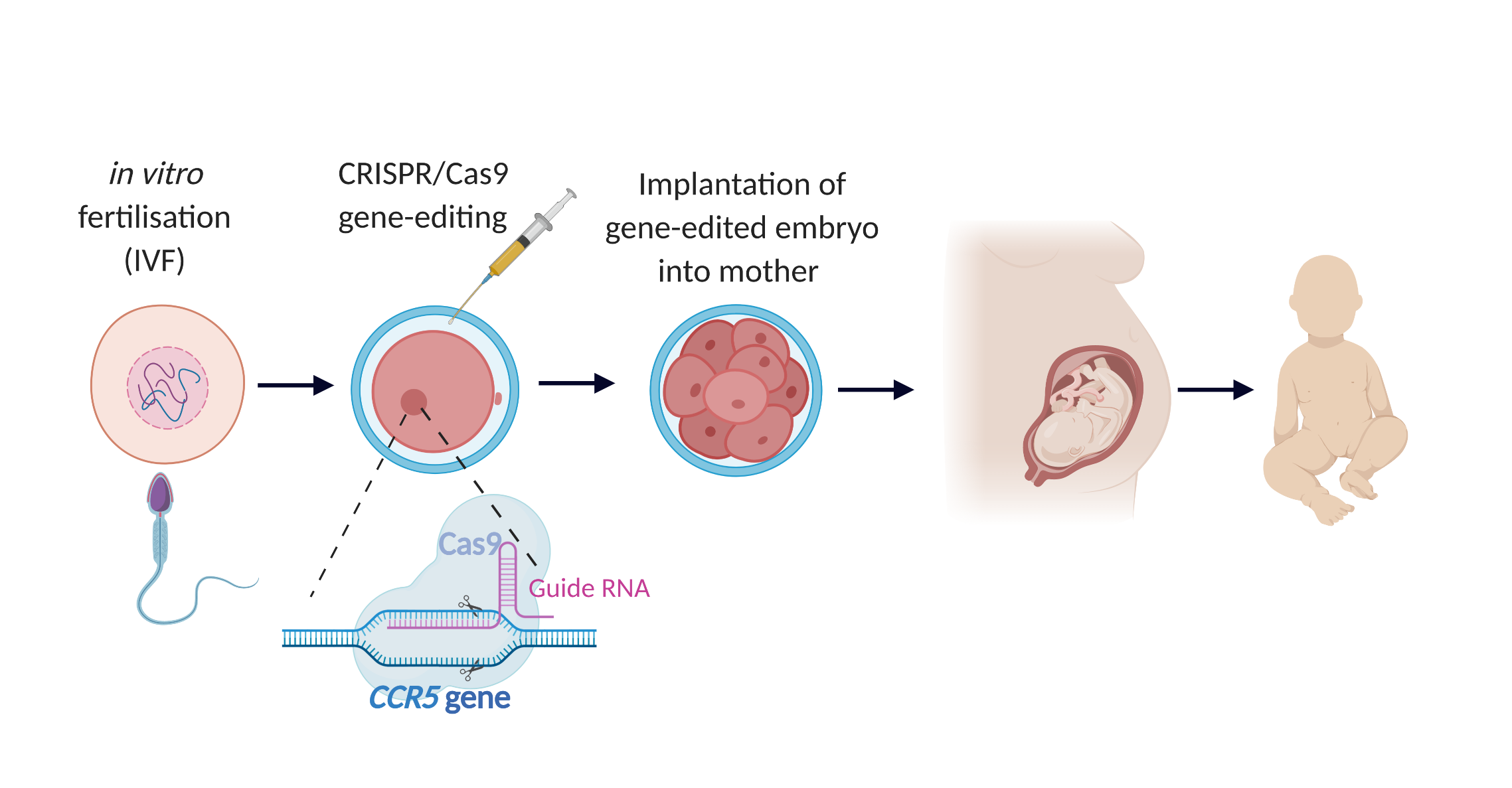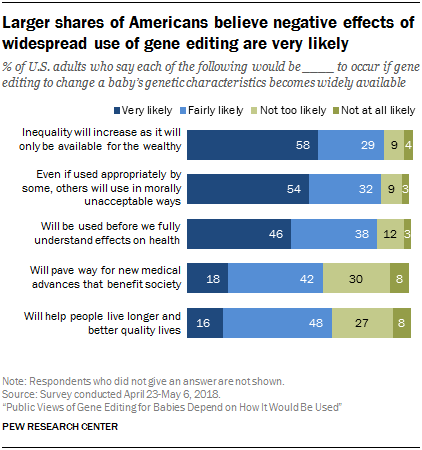Event 2 - Gattaca Watch Party (May 7)
At the time of its release, the futuristic world portrayed in the movie Gattaca seemed like a dystopian reality, yet after participating in the Gattaca watch party this week and doing my own research, I found that may not be the case anymore. The science fiction film centers heavily around the subject of the human genome, discrimination based upon genetics, and gene editing of human embryos. These topics, which may have seemed far-fetched in 1997, have become very much real-life topics and issues in modern society.
The main character in Gattaca, Vincent Freeman, is a human who was conceived and born naturally like the vast majority of humans now, yet in the world of Gattaca that is not the case. Most humans in the movie were made through reproductive technologies that harness eugenics to create humans with the most desirable genes that set them up for success. And while this is still considered science fiction in the eyes of the real world, progress has been made by real-life scientists that may unlock this technology in the future. In fact, Chinese scientist He Jiankui has already worked on a pair of twin embryos. He modified their genes using CRISPR technology and the genetically modified babies were born in late 2018. Previous to the genetic modification made by He, human genome editing CRISPR technology had only been used to edit genes in humans to help cure diseases, like editing defective red blood cells in patients and infusing them back into the subjects to cure them. He’s modification, which is more similar to the use of gene editing seen in Gattaca and is referred to as germline editing, has been described as groundbreaking in the world of gene modification, yet it also has received a great deal of criticism and sparked much international debate.
After all, if gene editing continues to advance to the point that is used in a similar fashion to the world of Gattaca, there are many problems that could arise. Watching Gattaca revealed many problems that I had not considered that surrounded the realm of biotech and human genomes. Vincent, who is seen as possessing ‘inferior’ genes, is barred from the top Space academy based upon his DNA, even though he demonstrates that he is more than qualified for the job. To curb such things from happening in the real world there have already been laws passed, such as the US Genetic Information Nondiscrimination Act of 2008, which bars discrimination based upon the genetic information of individuals. And, after the announcement of He Jiankui’s work, there have been many international agreements to ban or discourage research on germline editing.
After watching Gattaca, it became clear to me that the movie has become less science fiction and more a warning for real life. Human gene editing is a revolutionary field of science, and art for that matter, yet it also has its dangers. If left unregulated, the reality of gene editing and its consequences that Vincent faced in Gattaca could very much become the reality for mankind.
References:
Bergman, Mary Todd. "Perspectives on Gene Editing." The Harvard Gazette, 09 Jan. 2019. Web. <https://news.harvard.edu/gazette/story/2019/01/perspectives-on-gene-editing/>
Cyranoski, David. "The CRISPR-Baby Scandal: What's Next for Human Gene-Editing." Nature, 26 Feb. 2019. Web. <https://www.nature.com/articles/d41586-019-00673-1>
Ferguson, Kirsty. "In the Spotlight: The First Gene-Edited Babies." Euro Stem Cell, 04 Mar. 2020. Web. <https://www.eurostemcell.org/spotlight-first-gene-edited-babies>
Funk, Cary and Meg Hefferon. "Public Views of Gene Editing for Babies Depend on How it Would Be Used." Pew Research Center, 26 Jul. 2018. Web. <https://www.pewresearch.org/science/2018/07/26/public-views-of-gene-editing-for-babies-depend-on-how-it-would-be-used/>
"Genetic Discrimination." National Human Genome Research Institute, 16 Sept. 2020. Web. <https://www.genome.gov/about-genomics/policy-issues/Genetic-Discrimination>
"Gattaca Visit to the Local Geneticist." Youtube, uploaded by PCW, 17 Jul. 2009. Web. <https://www.youtube.com/watch?v=lP1cCjBkWZU>
Whitworth, Rich. "G-A-T-T-A-C-A." The Analytical Scientist, 24 Feb. 2016. Web. <



Comments
Post a Comment